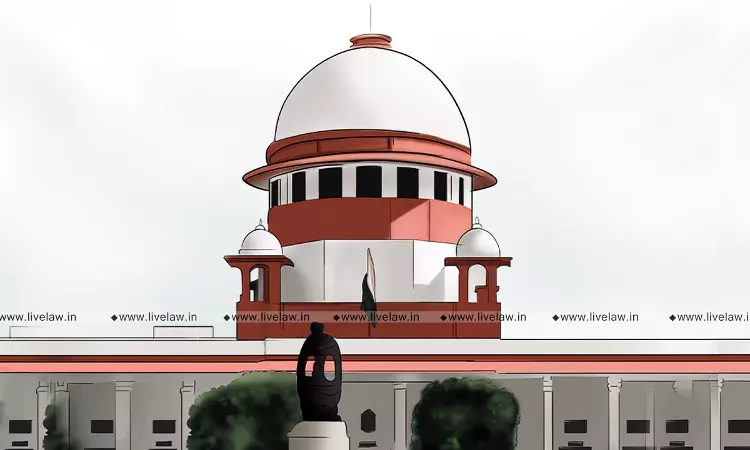- Home
- /
- Supreme court
- /
- 'Once Loan Settled, Difficult To...
'Once Loan Settled, Difficult To Understand Why Gold Was Revalued & Auctioned' : Supreme Court Revives FIR Against Bank Manager
Gursimran Kaur Bakshi
10 Jun 2025 10:10 AM IST
The Supreme Court recently revived criminal proceedings arising out of an FIR against an official of the Bank of India over alleged misappropriation of pledged gold.The Supreme Court set aside the judgment of the Patna High Court which quashed the FIR. According to the Supreme Court, it was premature on the part of the High Court to conclude at this stage that there was no ill-intention on...
The Supreme Court recently revived criminal proceedings arising out of an FIR against an official of the Bank of India over alleged misappropriation of pledged gold.
The Supreme Court set aside the judgment of the Patna High Court which quashed the FIR. According to the Supreme Court, it was premature on the part of the High Court to conclude at this stage that there was no ill-intention on the part of the bank official. Whether there was fraud or misappropriation was a matter of evidence to be considered at the stage of trial, the Court said.
The Court noted that the Appellant repaid the loan amount, but with substantial delay. Therefore, the loan was settled and there was no reason for the bank to revalue the gold.
"It is true that the appellant repaid the amount, but with substantial delay. However, once the loan is settled, it is difficult to understand as to why the gold was revalued and auctioned."
The brief facts are that the Appellant took a loan from the Bank of India, Motijhil Branch. He pledged 254 grams of 22-carat gold ornaments by way of security for a loan of Rs. 7,70,000. The issue arises with the repayment of the loan.
As per the Appellant, he was asked to pay Rs. 8,01,383.59, which included the interest, by the bank. But the bank conducted a revaluation of the gold pledged by him by a second valuer, and his application for returning the gold was not considered. As per the bank, the first valuer did not value the gold correctly and hence, he was removed and another valuer was asked to do the job.
The bank claimed that on the non-payment of the loan amount, the gold became an asset of the bank. When the gold was revalued, it was found to be counterfeited and therefore, a first information report was lodged under Sections 420 and 379 of the Indian Penal Code, 1860 by the bank against the appellant.
Subsequently, the Appellant also registered an FIR against the Branch and Credit Manager of the bank for offences under Sections 420, 406 and 34 of the Indian Penal Code.The Respondent(bank manager) approached the Patna High Court for quashing the FIR, which was allowed. The high court noted that the Appellant lodged FIR to cause wrongful loss to the bank. Against this order is the present SLP.
Supreme Court's findings
A bench of Justice Sanjay Karol and Justice Manoj Misra said: "In the present case, the High Court has not only taken note of the fraud (prevention and detection) risk management policy of the bank but has also factored in the removal of the 1st valuer to come to the conclusion that there is an absence of malafides on the part of the bank. It has also come to the findings on merits that the appellant undertook the entire process of securing a loan from the bank with ill intention. We are at a loss to understand as to how such a conclusion was arrived at, for the settled position is that for determining intention, evidence has to be taken into account. In a similar vein, how the High Court concluded that the appellant had an ulterior motive, is unclear."
The Court observed that it cannot be completely ruled out that the bank did not commit misappropriation of funds: "Still further, the discussion made by the High Court in quashing the FIR in no way addresses the possibility of the respondents' possible involvement in the misappropriation of the gold pledged. There was no third-party verification undertaken by the bank to corroborate the findings returned by the 2nd valuer, so it cannot be positively ruled out, without appreciating the evidence, that all the persons involved from the bank or outside (valuers) did not commit any act affecting appellant's pledged gold.
It was therefore observed that the High Court "improperly" quashed proceedings initiated by the Appellant.
"In any event, at all times the appellant had no access to the gold which, after its initial valuation, was always kept in the safe custody of the bankers. Fraud, if any, whether perpetrated at the first instance of valuation, or later, is a matter which could be unearthed only after a trial based on the evidence led by the parties. But, as of now, in no circumstances, it can be said that no prima facie case regarding commission of an offence, as alleged in the FIR, is made out from its perusal."
The Court further noted that although the account of the Appellant was declared as non-performing assent for non-payment and despite him depositing some amount later, it cannot be upgraded to a standard account, the path available to the bank to auction off the gold was "admittedly" not taken.
Case Details: ABHISHEK SINGH v. AJAY KUMAR & ORS| SLP (Crl.) No. 480/2025
Citation : 2025 LiveLaw (SC) 675



